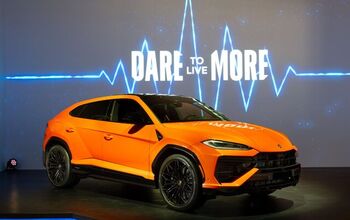France To Provide $22,000 Subsidy For Diesel Drivers Who Switch To EVs
While France already offers a subsidy of $8,400 for consumers who purchase a new electric vehicle, a proposed piece of legislation would see that figure expand for drivers of diesel cars, bringing the total subsidy to a staggering $22,000.
The bill, proposed by Segolene Royal (France’s minister for ecology, sustainable development and energy, and a one-time Presidential candidate) would provide enhanced subsidies for drivers of diesel-powered cars, according to the International Business Times.
With diesel cars being extremely popular in France, the bill would likely give drivers an incentive to scrap their oil-burner in favor of a new electric vehicle – and how convenient it is that French automaker Renault currently offers a range of EVs to suit every purse and purpose.
Although the Twizy is a niche city car, Renault’s Zoe and Kangoo EVs neatly cover the compact hatchback and commercial van markets, both of which are important segments and commonly powered by diesel engines. If a diesel driver took full advantage of the available subsidies – which, under the plan, would amount to an extra 10,000 euros on top of the 6,300 euros already available -, then a 20,700 euro Renault Zoe would cost just 4,400 euros.
While the program is undoubtedly cloaked in environmental benefits, the real gain here is for Renault, and France’s new car market. It’s hard to imagine that legions of diesel car owners wouldn’t be compelled to make the switch to a 4,400 euro new car, even with the limitations that come with owning an EV. Year to date, EV sales are down 12 percent in France, with Renault sales down 6 percent. This move should reverse things tout de suite.
More by Derek Kreindler


































Comments
Join the conversation
Socialism is great - untill you run out of other people's money.
Wonder what the fine print is here. I doubt I could have driven my 250 dollar 87 SEAT Malaga diesel to my nearest Renault dealer and come away with a new anything for 4,000 EUROs for example.
France is doomed anyway, they just help corporation$(Renault in these case) to $ell more (taxpayers will pay)
This would only make sense if the diesel powered trade-ins were to be scrapped, or exported. From the article: "Diesel passenger cars are far more popular in Europe than they are in the United States, so if the incentive passes, it has the potential to increase the scrappage rates of diesel-burning cars." So, "potential" means that it's not a "Cash For Clatterers" program, so these cars could very well be on the road for some time.